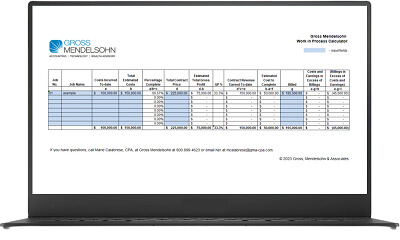Under current accounting rules, accountants are allowed to prepare compiled, reviewed and audited financial statements. Each service provides a different level of assurance, and as you move up the level of assurance, the cost to the business owner increases. You can read more on compiled, reviewed and audited financial statements here.
But if you’re looking to hitch your wagon to the expected increase in construction business, and need financing or bonding to do so, you might need to reconsider whether or not you need to have an audit of your financial statements done by your CPA.
What Does an Audit Do for You?
At a fundamental level, a financial statement audit gives lenders and bonding authorities a level of assurance that your financials and the way that you are managing the financial life of your company are in line with Generally Accepted Accounting Principles (GAAP). An “unqualified opinion” means that the CPA firm that did your audit has given your financial statement a passing grade. On the other hand, a “qualified audit” means that your financial statements are inconsistent with GAAP reporting requirements, or that there’s something in your financial systems or financial operations that needs fixing.
Lenders and surety companies may require an audited financial statement before making a loan or giving a bond. But there are a couple of other reasons why you may want to go down this road.
First, studies show that firms that present a clean audit are more likely to benefit from lower interest rates.
Second, state and local governments tend to treat companies who bring an audited financial statement to the table with greater respect, leading to more work.
Third, an audit will catch accounting mistakes or even identify internal control issues that need fixing. Ultimately, those fixes will make the company a better run and managed entity.
The Downsides of an Audit of Your Construction Company
Audits can be costly and will require time and resources from your company for data collection, interviews, and in general, other costs associated with a disruption of your finance department’s normal routines.
In fact, you might not need an audit, particularly if your lenders and surety providers don’t require one. A review or compilation done by your accountant may be sufficient for your situation.
Need Help?
Contact us online or call 800.899.4623 to discuss your construction business.


